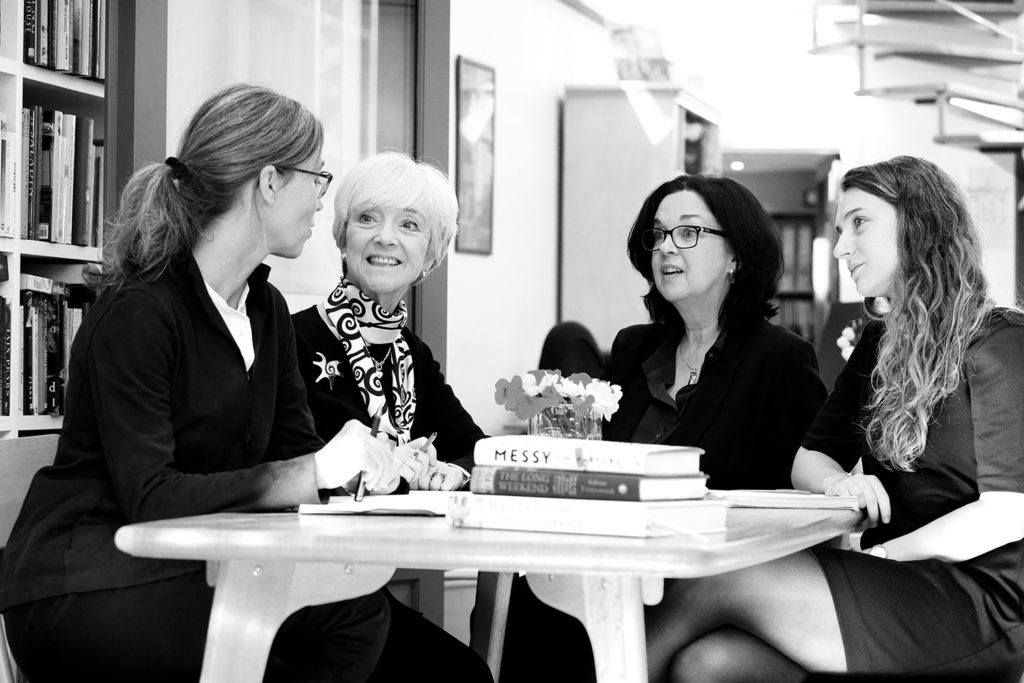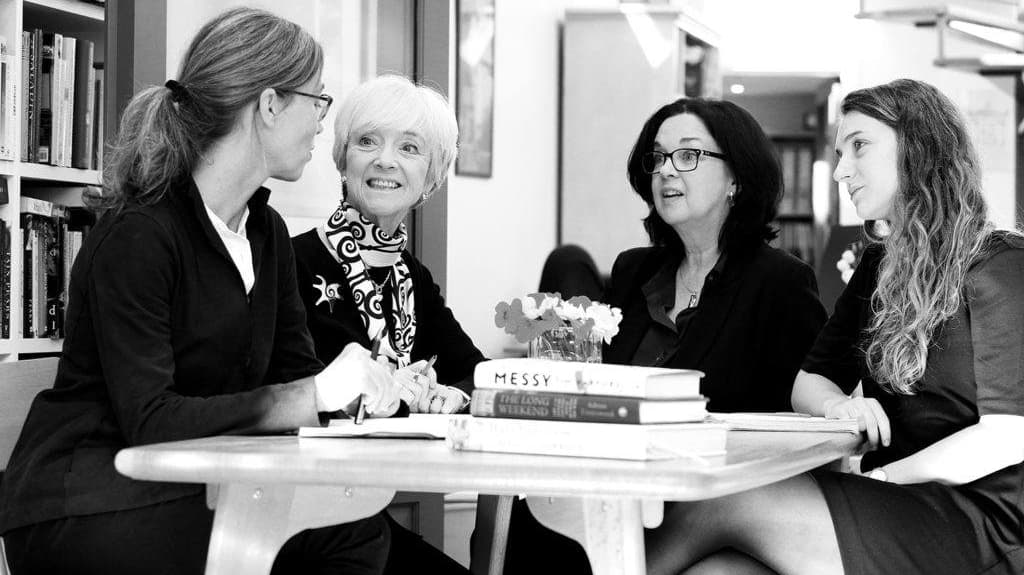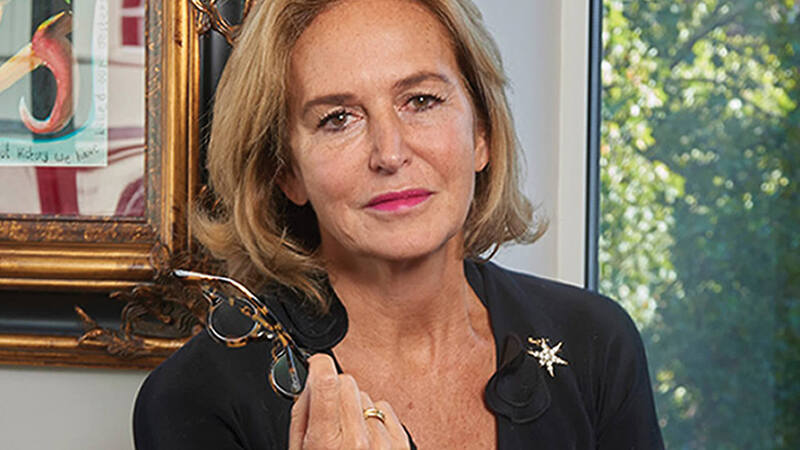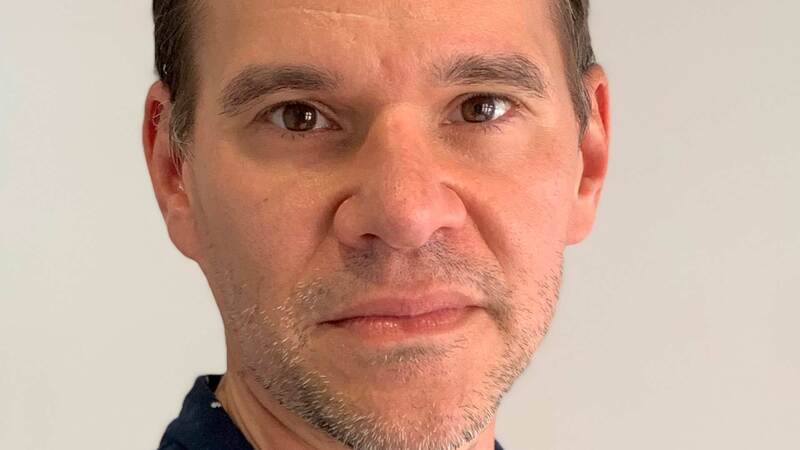You are viewing your 1 free article this month. Login to read more articles.
Bridging the gap: Felicity Bryan on agenting and Oxford
Felicity Bryan hails a bumper year for Felicity Bryan Associates
Last year was a bumper year for Felicity Bryan Associates. We had three authors shortlisted for the Costa; winners of the James Tait Black, Hawthornden and Wellcome Prizes; and two French prizes. John Barton’s The Bible was a surprise bestseller. Peter Frankopan’s The Silk Roads topped 1.4 million copies sold. The “books of the year” lists are littered with titles by our authors.
We are the largest agency outside London. And profits were up to boot. I feel I can boast because most of this is not down to me but to my starry colleagues. Hamish Hamilton publishing director Simon Prosser once told my colleague Caroline Wood that we were known as the happiest UK agency. And certainly walking into our office in North Parade, Oxford, gives me a spring in my step.
It still surprises me that we are now 11 people—five agents and six support staff. When I started up in 1988, I had no such ambitions. I had been an agent for 15 years at Curtis Brown, having been plucked from the Economist in 1972 by the great Graham Watson, who became my mentor. But in 1981 I had married my husband, Alex, and moved to Oxford. I commuted for five years; during that time, I had three children.
It was when I went back to work in autumn 1987 (only three months’ maternity leave then) that I felt my life had the wrong balance. We brainstormed at the kitchen table. What could I do in Oxford? Alex said it was a no-brainer; I should start a literary agency here.
Capital losses
In 1988, this seemed bold. There were no significant agencies outside London. On the back of an envelope we listed the authors I wanted to come with me. I had a secret breakfast meeting with Richard Simon, an independent agent who showed me how he ran his office and how to service a cheque, and then I broke the news to Mike Shaw, my great friend and m.d. of Curtis Brown. We made a deal.
The day I phoned my authors was moving. They cheered me on and seemed unfazed that I was leaving behind the back-up that Curtis Brown provided—after all, they were self-employed people themselves. Thirty authors (including Miriam Stoppard, Roy Strong, John Julius Norwich, Mary Berry, Matt Ridley, Artemis Cooper, Rosamunde Pilcher and my gardeners Penelope Hobhouse, Rosemary Verey and the RHS) signed up.
When founding a company, image is vital. I must not appear provincial, I must make a feature of being in Oxford. I would represent more scholars—particularly historians and scientists—who could write for the trade; I would find Oxford authors; and, most importantly, I would see myself as an international agent. London would not be my first port of call. On that front, my ally was fellow agent Andrew Nurnberg. When we met for lunch, I said I wanted full involvement with my authors’ translation rights. I would travel Europe, go to Frankfurt and meet their publishers; the foreign department at Curtis Brown had been a black hole. I wanted to think internationally, and he must allow me to meddle.
Our first big international sale was Karen Armstrong’s A History of God. Andrew sold it to Karl Blessing at Droemer, and then the Frankfurt ball rolled. Robbert Ammerlaan at De Bezige Bij sold 100,000 copies in Holland alone. It is now a classic, having sold in 40 languages. Our next sensation was An Instance of the Fingerpost, by Oxford local Iain Pears, which garnered $2m in deals before the manuscript was even delivered.
By 2000, we were ticking over profitably with my assistant Michele Topham and Carole Robinson in accounts. My children had a homework room at the office, and the balance was good. But we were stretched. We needed another agent. I bought the freehold of my building, so I knew we could expand. Enter Catherine Clarke. She had run the trade division at OUP, but had worked there since she left Cambridge, and was ripe for a change. The day we had lunch, I told Alex over supper that I had found my successor. Eighteen years on, she brilliantly runs the show.
Catherine’s arrival changed everything. We were now an expanding agency with a future. At her first Frankfurt she did a six-figure deal for John Dickie’s Cosa Nostra, which became a worldwide bestseller. She then turned her hand to children’s books—which I knew nothing about—at just the time the market was expanding. Meg Rosoff, Jenny Downham, Sally Gardner and Liz Kessler became international brands.
I had told Catherine she must not feel rushed; it would take her five years to cover her costs—i.e. twice her salary in commission. Of course, she did it in less. We had meanwhile taken Sally Holloway on as an associate agent, bringing in classy, clever thinking authors like Tim Harford of The Undercover Economist. We sat down and said: “What is our gap?” It was glaring: while Rosamunde Pilcher’s royalties funded my building projects, we were short on adult fiction.
Enter Caroline Wood, a film producer wanting a career change and a move from London. Her contacts were wide and different. We took to her immediately. Her first big bestseller was Liza Klaussmann’s Tigers in Red Weather. We soon made her a director. Her authors include Rhidian Brook, Anna Hope, Gill Hornby and Martin Walker whose Bruno crime series has sold over three million copies in Germany alone. Such is her reputation that when recently [Peake Associates founder] Tony Peake decided to retire, he chose Caroline to take on his authors Jonathan Coe and Damon Galgut, just as [eponymous agency owner] Lavinia Trevor had with Louis de Bernières.

Passing the baton
So there I was with two directors, both collegiate stars who I wanted to embed and give a share of the business. It’s not so easy doing this. How do you value an agency? After expensive sessions with lawyers and accountants—and a really useful chat with [late RCW founder] Deborah Rogers—our management buyout happened in 2010. Alex’s share was bought out and I was left with 45% of the company, and paid out of company profits over a five-year period. Now I am down to 35%. I’m not a natural manager. I was happy to make Catherine managing director.
Our latest excitement is Carrie Plitt, a sparkling American who arrived in 2016. With her podcast “Literary Friction”, Carrie is plugged into a younger group. She hit the tarmac running with clever books like David Robson’s The Intelligence Trap. She introduced a paid intern scheme which has delivered two great staff members and has brought in diverse authors like Reni Eddo-Lodge and Will Eaves. Her latest triumph was getting 10 UK publishers to bid significant six figures for Natasha Lunn’s spellbinding proposal Conversations on Love. She is now a director.
Publishing and agenting has changed radically in my 47 years in the trade. But the thrill of representing brilliant authors, helping them achieve reputational and financial success, and the joy of matchmaking an author with an editor and watching the relationship flower is no different—and it still sends a tingle down my spine.
(Photograph, from left: Caroline Wood, Felicity Bryan, Catherine Clarke, Carrie Plitt)















